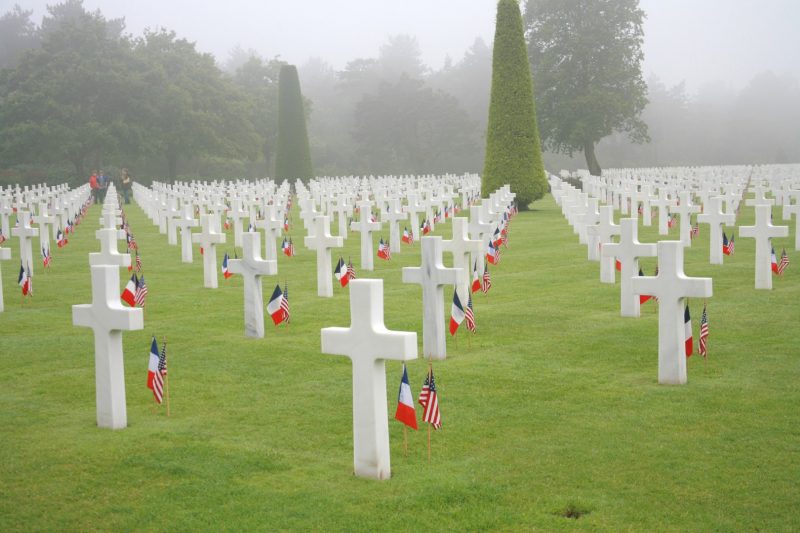When Rodney Duderstadt received a letter from Marine Hannon, it ended decades of worry. Duderstadt, 76, has worried for years about the condition of his father’s grave at Omaha beach.
Duderstadt’s father, Vivian L. Ward, was part of the 7th Armored Division, Headquarters B. He was killed on August 21, 1944, 11 days after he arrived in France on special duty. He was 18 years old. When Duderstadt was 5, he received his father’s Purple Heart medal.
Ward is buried in Normandy American Cemetery and Memorial in Colleville-sur-Mer. “I worried about that grave for 70 years,” Duderstadt said, describing several failed attempts he made to have flowers delivered to his father’s gravesite.
Duderstadt is unable to travel to France, but he feels comforted knowing that Marine is taking care of it in his place.
“Then here comes a letter from Marine,” he continues, describing his elation. “It was an answer to my prayers” to learn that his father’s grave has a local caretaker.
His friendship with Marine has flourished since the young woman first wrote him in 2014. This week, the two finally met in person. Marine, along with her parents, Hervé and Nicole Hannon, and her brother, Julien, made the trip to Texas to meet Duderstadt and his family.
“Ever since this happened I’ve said God must have been involved to bring us together,” he said. “I sent her a picture of my dad so she could know who she was doing it for. Not many 23-year-olds have a heart like hers.”
Normandy American Cemetery and the Brittany American Cemetery and Memorial are maintained by the American Battle Monuments Commission.
The Brittany American Cemetery has 4,409 graves with 95 unidentified soldiers and a wall with 498 names of missing soldiers.
There are 9,387 soldiers buried in Normandy American Cemetery. The identities of 307 of those soldiers are unknown. The cemetery features a curved wall with the names of 1,557 missing soldiers. The cemetery is on a cliff overlooking Omaha beach. Ward is buried in Section J, row 14, grave 11.
Marine comes by two or three times each year to care for his headstone. She is a member of the Association Les Fleurs de la Mémorie. The organization was founded in 2000 and sponsors the placing of flowers on the graves of soldiers buried in American cemeteries in France.
When Marine visits the cemetery, she places flowers on Ward’s grave. She also takes pictures and spends a few minutes reflecting about the fallen soldier. As part of her caretaking, she takes sand from Omaha beach and rubs it on Ward’s engraved name. She says it looks like gold against the white headstone.
“When I was really young, and with my brothers [my parents would] bring us to Normandy to teach us” about D-Day and World War II, she said.
“They would say, ‘See, you are free thanks to them,’ and I grew up with that idea, like I need to go there because (they) came to France to free us, and that’s why we can speak French,” she said.
“Because of the duty of memory,” Marine said, translating for her father Hervé, who spoke about why he and his wife took their children to visit American graves. “And because I think it was important for [them] to know this part of history in France. People were coming from the other side of the ocean to free us, and it’s really important to teach [our children] to be thankful for them.”
The families consider themselves related despite the differences in language and geography.
“We’re so far apart, but so much alike,” Duderstadt said about Marine and her family.
So, even though Duderstadt cannot travel to France, he is comforted knowing that relatives are taking care of his father’s grave.
“The thing is, I’ll never have to worry about that grave,” Duderstadt said.
